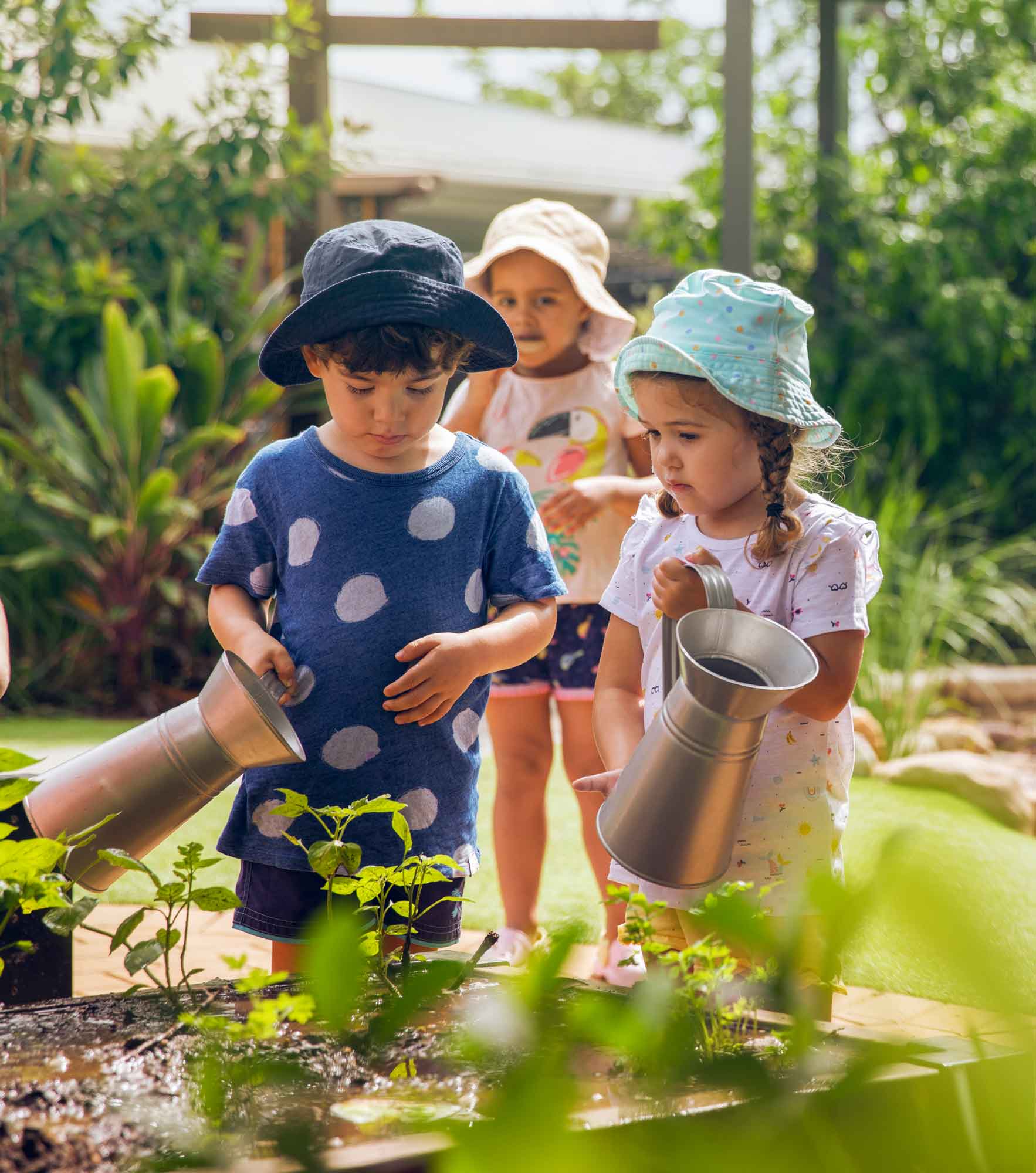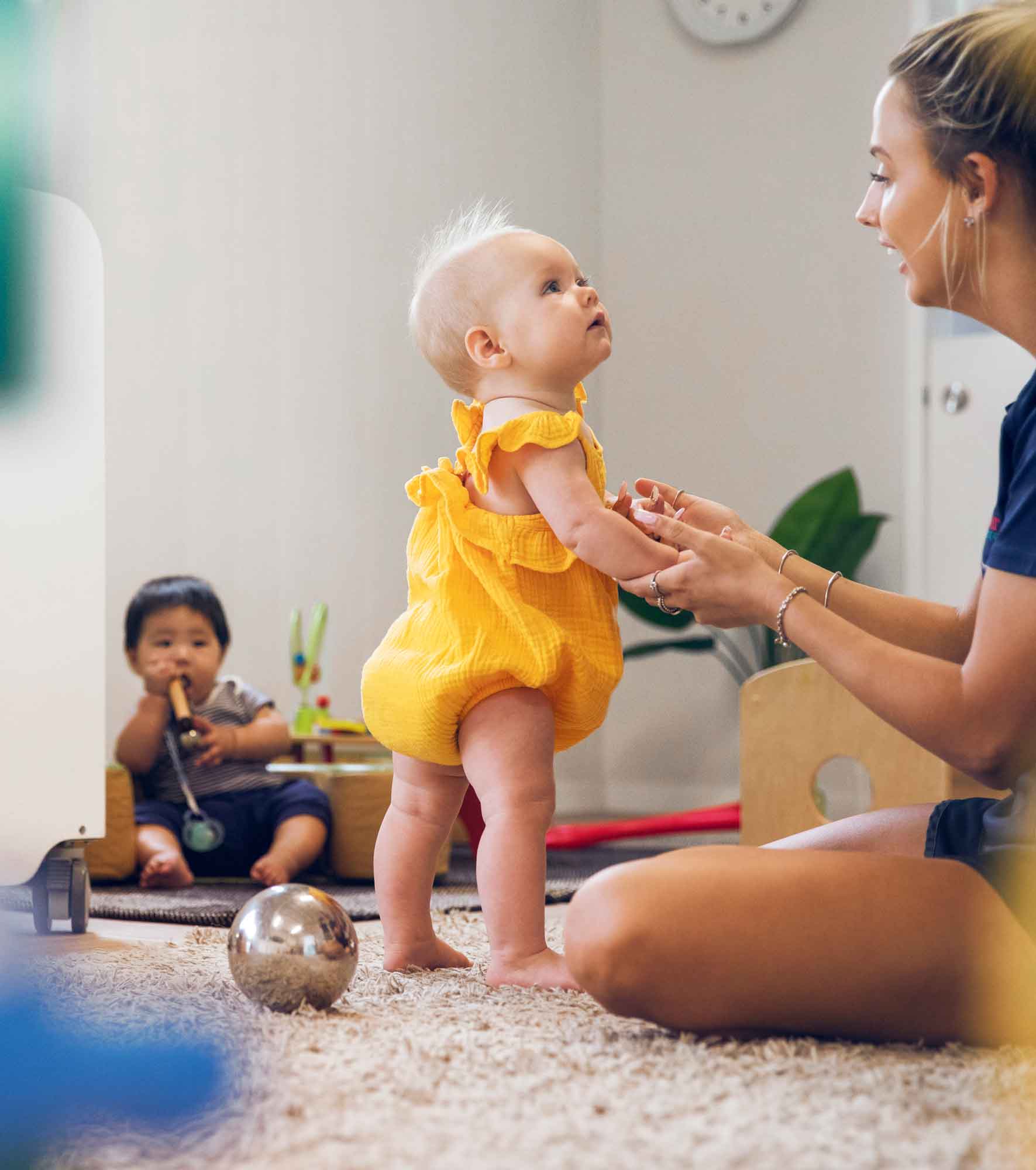The SELF At Journey
How little things can accomplish big and even great things.
For educators and children likewise at Journey Early Learning.
What happens when two passionate advocates for children’s well-being meet at the right moment in their careers? It’s simple: they developed The Social & Emotional Learning Foundation – The SELF.
Passion and Experience
Seona’s background is in perinatal nursing, and her early career focused on studying and promoting a secure attachment between the infant and parent. This work had Seona focusing on the key parenting skills that improved parental confidence and the infant’s mental health right from the start of the parenting journey to reduce stress and improve family functioning and joy. On the other hand, Tracey’s background as a social worker has focused on supporting families where the essential skills and foundations for creating an environment that guarantees a child’s well-being were absent. After nearly 10 years working on the frontline with children and their families in crisis, she opted for a position where she could use a parent’s strengths to initiate proactive developmental outcomes.
We can influence whether we achieve good or great developmental outcomes.
The SELF programs, align perfectly with Journey’s approach of “putting the child at the centre of everything we do.” It focuses on attuning to the needs of each child, which is, as we all know, sometimes easier said than done. An outstanding relationship between the child and educator is the foundation for children achieving their full potential in early learning and development. By conveying the necessary connection and relational security, a positive lifelong impact can be achieved for each child. Tracey and Seona believe that this particular kind of relationship is the key to a child achieving optimal developmental outcomes , and the studies have shown this over and over again. The two believe that we already have the tools that it takes to support children’s social and emotional development – and that is ourselves. “We can influence whether we achieve a good or great developmental outcome,” Tracey says—a worthwhile goal.
It’s the little things that count.
Good for us, Tracey and Seona’s approach is theoretical and practical. They visit our Journey centres on-site to give advice and point out the potential of small, untapped and developmentally helpful moments with a child. By realising that everyday moments, such as changing nappies or engaging in spur-of-the-moment conversation, can be valuable for a child’s development, educators can make the most out of their everyday interactions with children. The insights provided by The SELF can contribute decisively to the growth and development of both children and educators, making it essential to provide opportunities for further education.
As they know firsthand how demanding and challenging this profession can be. That is why the way they do it is by offering supportive empowerment to educators. Of course, the challenging situations will remain, but with their help, educators can have the professional understanding to know that they have done their best. And sometimes, tiny things, such as your tone of voice, eye contact, facial expressions, and body language, can make a big difference.
Self-care, stress management and a strong team
Supporting children’s social and emotional development is a task that is preceded by taking care of one’s own well-being. This means being mindful of oneself and one’s colleagues in the team. Just as children need someone to stand on their side when life gets tough, educators need that too. Colleagues who see each other, attune and empathise with each other, listen to each other, and find the right words. In the demanding daily routine, the team should see itself as a supportive network and look out for each other. “Children need an emotionally consistent educator who relates predictably,” Tracey mentions. So taking care of each other as a team, is vital. This also points out the importance of trusting cooperation within the team. Because this leads to a situation in which one can openly say they need support at a particular moment.
Not every day is about rainbows and lollipops.
Tracey and Seona know from experience that not every day is “about rainbows and lollipops”, as they say. They know the job of an educator is demanding and challenging. Unfortunately, this fact is often not seen. The broader community often misunderstands the demands and undervalues the role of caring and educating our little people. The campaign to promote the important role of educators is real and ongoing. And something that The SELF wants to be a part of.
The question arises from this: Are prospective educators equipped with the necessary tools to deal with this? Of course, all the knowledge about a child’s development that is given during professional training is good. But it only partially prepares educators for everyday life in service. The founders of The SELF believe that training that focuses on relational development could and should be offered much earlier in those careers, perhaps at the beginning to prepare educators better right from the start to feel empowered to support children’s diverse developmental needs.
You can always learn something new.
Seona and Tracey provide practical ways to integrate support for positive child development into everyday life without letting it become an additional task on the already long list. “An educator with many years of experience told me, “I was not aware of just how important I am personally for a child’s social and emotional development.”, Seona mentioned.
You make a difference.
To be rightly perceived to feel valued and seen as an educator is only one of the points Tracey and Seona emphasise. This is one aspect that was always central in their conversations with Fiona while setting up this program for us. And, of course, the shared motivation of The SELF and the Journey Academy to support both: children and educators. So that both sides can grow together and beyond themselves.
An approach that runs like a red thread through the entire Journey Academy program.
Support based on sound knowledge, as The SELF offers, leads to more positive experiences in everyday work. The result is that you can influence or shape situations in the best possible way, giving you confidence in your abilities, professional language for the work you achieve in the everyday moments and a sense of personal contentment. Studies show that these are two factors that contribute significantly to job satisfaction.
And so, it can be said that the learning offer leads to a classic win-win-win situation. For the children, professional development and more satisfaction. And that is clearly a result that is worth celebrating.
A big thank you to Seona and Tracey from The SELF and Fiona for making this program possible for the Journey Academy and especially to all the participants.



